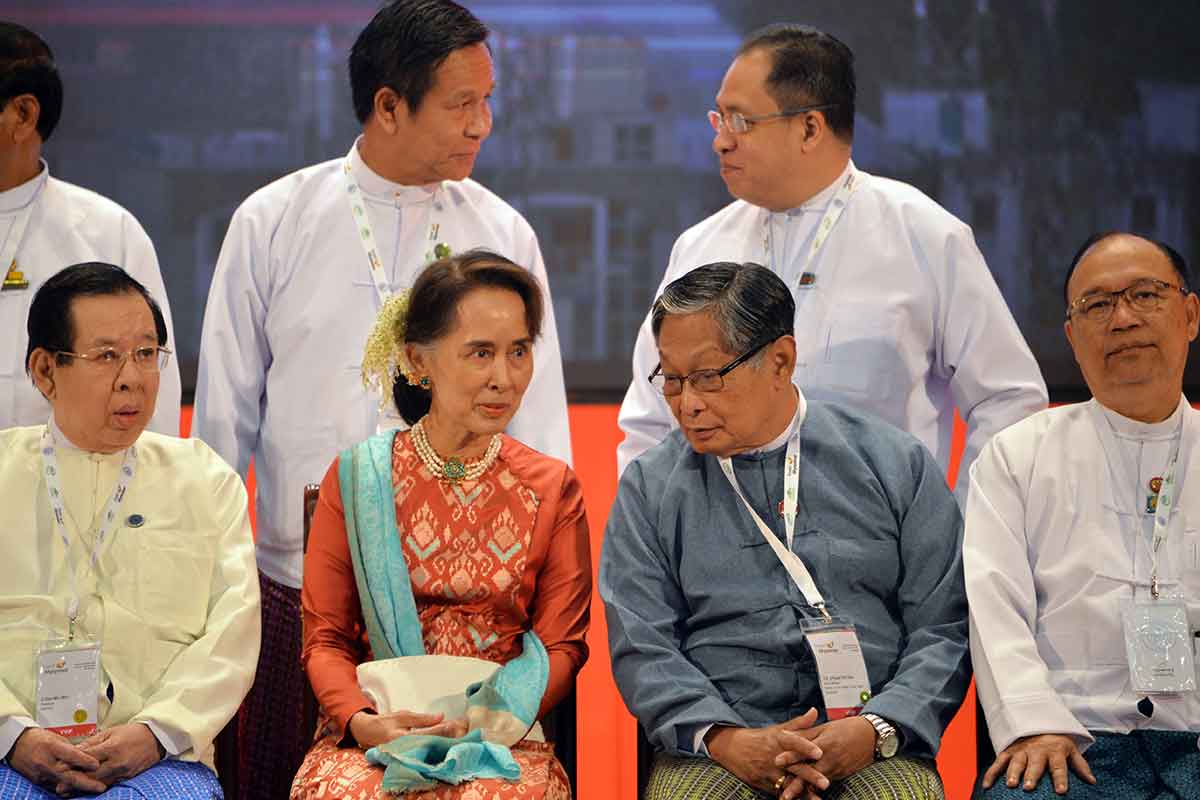In a vast convention centre in Naypyidaw, Myanmar’s sprawling and eerily empty capital, prospective investors listened politely as local companies pitched opportunities and government officials spoke of the country’s vast economic potential.
Yet in the hallways, conversations drifted toward one topic: A military-led crackdown that drove more than 700,000 Rohingya Muslims from the country, prompting allegations of genocide and threats of renewed economic penalties from the United States (US) and European Union (EU).
“Someone said it’s like the elephant in the room,” Thaung Tun, Myanmar’s minister for investment and foreign economic relations, told a mostly Asian audience at the Invest Myanmar Summit 2019 held in January. “I think it’s more like a bull in a China shop. That is what it is. Let’s get the bull out of the China shop.”
Thaung Tun hewed to the official line: The situation is centuries old and complicated, Rohingya militants are to blame for attacks on locals and Myanmar can’t accept terrorism. Rather than pointing fingers, he said, the international community should work with Myanmar to help solve the crisis and develop the country.
The audience erupted in applause.
The scene showed the differing approaches between Asia and the West in dealing with Myanmar, a country that has largely underwhelmed investors since opening up with democratic reforms in 2010. The slow pace of change in sectors from banking to aviation to insurance has kept large parts of the country’s US$70 billion economy off limits for many foreign investors.
‘Ethnic cleansing’
The Rohingya crisis has only made things worse. Aung San Suu Kyi, Myanmar’s de facto leader and a former political prisoner for many years, has seen her international image suffer as she’s defended the military against what the United Nations (UN) called a “textbook example of ethnic cleansing” in the western state of Rakhine.
That has contributed to a significant lag in Western money coming into Myanmar. Companies from the EU and US collectively invested US$894 million for the fiscal year through March 2018, according to the latest available data from Myanmar’s government. That compares with US$4.7 billion from companies based in Asia.
“To the West, Rakhine equals Myanmar and Myanmar equals Rakhine, and there doesn’t seem to be anything else,” said Serge Pun, a local tycoon who is chairman of Serge Pun & Associates. “Whereas the East has another lens, and that is Rakhine is a problem. But Rakhine is a small part of Myanmar, and there is still Myanmar left, and we should engage and not isolate. We should help and not punish.”
Suu Kyi didn’t mention the crisis in her remarks at the Invest Myanmar summit. While Western investors mostly steered clear of the event, representatives from Chinese and Japanese companies interacted with local businessmen.
“We will be together with the Myanmar people,” Kunio Negishi, chairman of the Japan Chamber of Commerce and Industry in Myanmar, said to applause during a panel discussion at the summit.
That sentiment was echoed by Yuan Shaobin, the managing director of Citic Group (Myanmar) Co. “The politicians of Myanmar can solve this,” Yuan said. “And this will happen when Myanmar is developed.”
Protectionist laws
Western investors have other reasons than Rohingya to stay away from Myanmar. The country’s problems range from a lack of electricity – less than one-third of households have access to it – to protectionist laws that shut off vast sectors of the economy. Suu Kyi’s civilian government also must share power with the military, and has scant experience in governing.
Yet the troubles in Rakhine state could still impact Myanmar’s investment climate, only a few years after sanctions were lifted following decades of overt military rule. The EU, for example, has threatened to reinstate tariffs on goods such as garments due to the genocide allegations.
Myanmar’s security forces systematically murdered, tortured, gang-raped and enslaved thousands of civilians, while also setting fire to entire communities in violation of international law, according to a UN Human Rights Council-mandated fact-finding mission’s report released last August. It recommended that Myanmar’s top generals be investigated and prosecuted for committing genocide and war crimes. Myanmar has denied the allegations.
More recently, Myanmar has been criticised for jailing two Reuters journalists who were reporting on a massacre of Rohingya. The two journalists were sentenced to seven years for possession of state secrets even though a police officer admitted he had been ordered to frame them. Suu Kyi has refused to engineer a pardon.
“The Reuters journalists – it’s absolutely horrible,” said Thiri Thant Mon, the country representative of Myanmar for CDC Group, a development finance institution owned by the British government. “They’re shooting themselves in the foot.’’
Myanmar’s government had little alternative but to look east if western investors are reluctant to put money down, according to Thura Ko Ko, a private equity investor who returned to Myanmar after being educated in the United Kingdom (UK).
“But as investors, we also need the government to recognise that there are elephants in the room,” he said. “Gone are the days when they can ignore it, and they need to address it.” - Bloomberg
